Looking for the perfect property valuation software for your business?
Well, if you are in real estate, you know just how important property valuation is. And at the same time, how difficult it can be.
But what if we tell you, with the help of modern tech or shall we shall PropTech, you don’t have to deal with all the headaches of calculation?
Property valuation software has made everything that much easier.
In this blog, we shall be discussing everything you need to know about property valuation software. In addition, we shall also discuss whether or not you shall go for custom software development.
So with this being said, let’s get right into it:
What is Property Valuation Software?
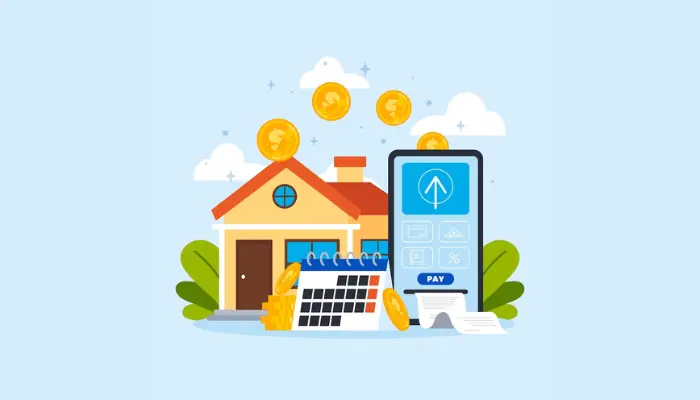
One of the first questions that people ask is, what is this software?
Property valuation software refers to a specialized digital tool designed to estimate the monetary value of real estate properties.
This software employs advanced algorithms, data analysis, and market trends to calculate an approximate value for a property.
It is used by individuals and professionals in the real estate industry to make informed decisions about buying, selling, investing, or managing properties.
Moreover, by analyzing various factors such as property features, local market conditions, recent sales data, and economic indicators, property valuation software provides accurate and data-driven property value estimates.
Thus, making it a good example of real estate solution development.
Speaking of which, now that you know what property valuation software is, let’s look at how these solutions work.
How Does Property Valuation Software Work?
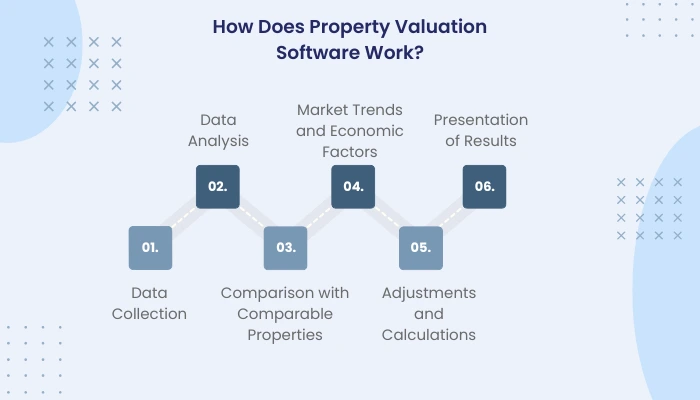
Property valuation software employs advanced algorithms and data analysis techniques to evaluate the value of a property.
Here’s how it works:
Data Collection
The commercial property valuation software gathers a wide range of data related to the property and its surroundings.
This includes recent sale prices of similar properties in the area, local market trends, property size, conditions, amenities, and more.
Data Analysis
Once the software collects the necessary data, it employs complex algorithms to analyze the information.
It considers various factors that influence property value, such as location, property features, current market demand, and historical price trends.
Comparison of Comparable Properties
One key aspect of property valuation is comparing the target property with similar properties that have been sold recently.
The software identifies comparable properties (also known as “comps”) and adjusts the target property’s value based on the differences and similarities.
Market Trends and Economic Factors
Property valuation software doesn’t operate in isolation.
It takes into account broader economic trends and market conditions that can impact property values.
This can include factors like interest rates, inflation rates, and local economic growth.
Adjustments and Calculations
The software applies adjustments to the property’s estimated value based on factors like the number of bedrooms, bathrooms, square footage, and other unique characteristics.
It performs intricate calculations to arrive at a final estimated value.
Presentation of Results
Once the analysis is complete, the software presents the estimated property value to you in an easy-to-understand format.
This value can be crucial for making informed decisions about buying, selling, or investing in real estate.
Why Do You Need Property Valuation Software?
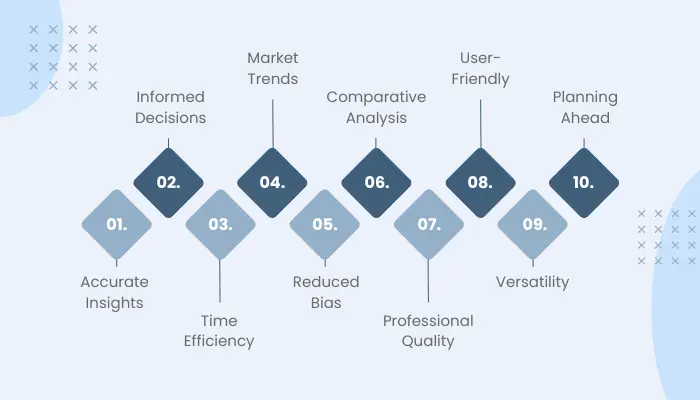
Property valuation software is good and all, but why should real estate agents and firms go for it?
Well, there are various benefits property valuation solutions offer. Let’s look at a few reasons to choose the same below:
1. Accurate Insights
Property valuation software employs advanced algorithms and data analysis to provide accurate property value estimates.
Moreover, this helps you understand the true worth of a property, whether you’re looking to sell, buy, or invest.
2. Informed Decisions
When you have a reliable estimate of a property’s value, you can make well-informed decisions.
Whether you’re selling your property at the right price or considering a real estate investment, the software equips you with crucial insights.
3. Time Efficiency
Instead of spending hours researching and manually calculating property values, the software provides quick results within minutes.
Plus, this saves you time and effort, allowing you to focus on other aspects of your real estate endeavors.
4. Market Trends
Property valuation software considers current market trends and economic factors that influence property values.
This ensures that your valuation is aligned with the ever-changing real estate market. Not to mention the fact that property valuation software itself is a real estate technology trend.
5. Reduced Bias
By relying on data and algorithms, property valuation software reduces the potential for human bias in the valuation process.
And this leads to more objective and impartial property value estimates.
6. Comparative Analysis
The software compares your property with similar ones that have been sold recently, helping you understand how your property stacks up in terms of value.
This valuable insight is especially useful for negotiations.
7. Professional Quality
Property valuation software offers a level of accuracy and detail that can rival professional appraisals.
It’s a cost-effective way to access high-quality property valuation tools without breaking the bank.
8. User-Friendly
You don’t need to be a real estate expert to use property valuation software.
With its user-friendly interface, you can easily input property details and receive a comprehensive valuation report.
9. Versatility
Whether you’re a homeowner, real estate investor, or industry professional, property valuation software caters to various needs.
It’s a versatile tool that can assist you in different scenarios.
10. Planning Ahead
Understanding the value of your property helps you plan for the future.
Whether you’re considering renovations, refinancing, or selling, having an accurate valuation is a crucial starting point.
With this out of the way, let’s look at some of the best property valuation software in the market, below.
List of Best Property Valuation Software on the Market
The market is filled with property valuation software.
And since we are on the quest to know all about them, we shall be discussing everything you need to know about them.
So with this being said, let’s get right into it:
1. Propy
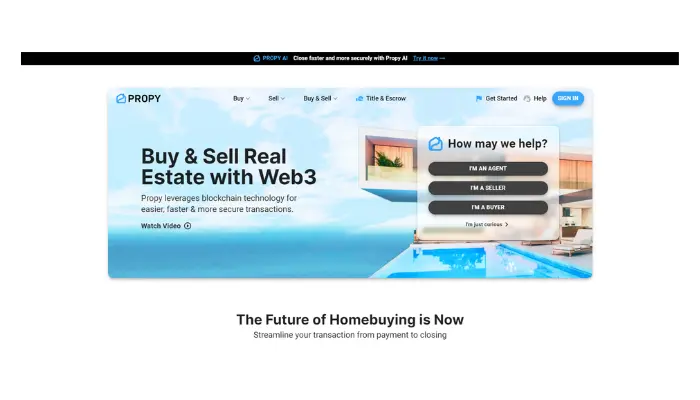
Propy offers an AI-powered platform that streamlines property valuations through advanced algorithms, comparable property data, and market trends analysis.
Its user-friendly interface and accurate valuation reports make it a popular choice for real estate professionals.
Features
AI-powered valuations, comparable property data, and market trends analysis.
Pricing
Contact Propy for customized pricing based on your business needs.
2. HouseCanary
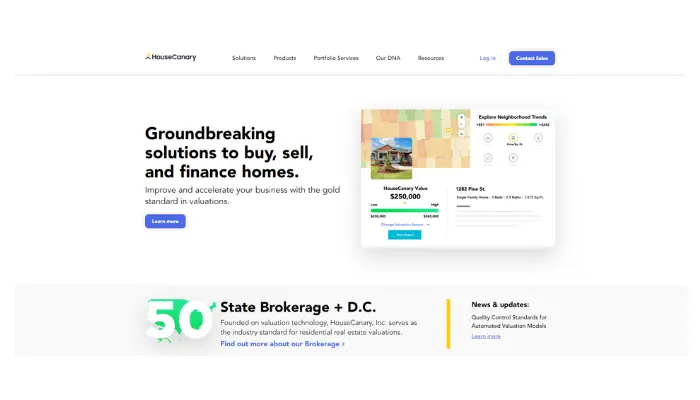
With its extensive database and predictive analytics, HouseCanary delivers precise property valuations. The software considers various factors such as location, property characteristics, and market trends to provide comprehensive insights.
Features
Predictive analytics, extensive database, and property characteristics consideration.
Pricing
Pricing details are available upon request.
3. Anaplan for Real Estate
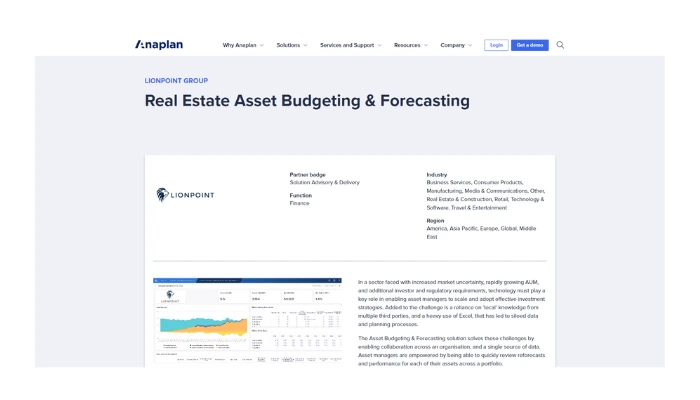
Anaplan’s software helps real estate teams forecast property values by integrating financial and operational data. It enables collaborative planning, allowing teams to make informed decisions based on accurate valuations and market insights.
Features
Integrated financial and operational data and collaborative planning.
Pricing
Customize pricing based on the scale and requirements of your business.
4. Altus Group’s ARGUS Enterprise
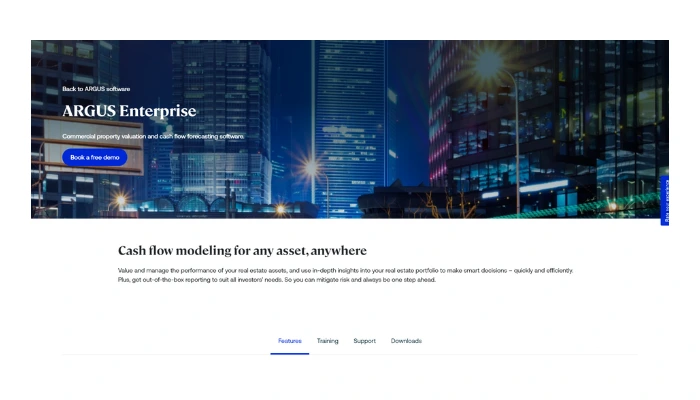
This software is a powerful solution for commercial real estate valuation and analysis.
Argus Enterprise supports complex modeling, cash flow projections, and sensitivity analysis, assisting professionals in making strategic investment choices.
Features
Complex modeling, cash flow projections, sensitivity analysis.
Pricing
Contact Altus Group for detailed pricing information.
5. BrokerMetrics
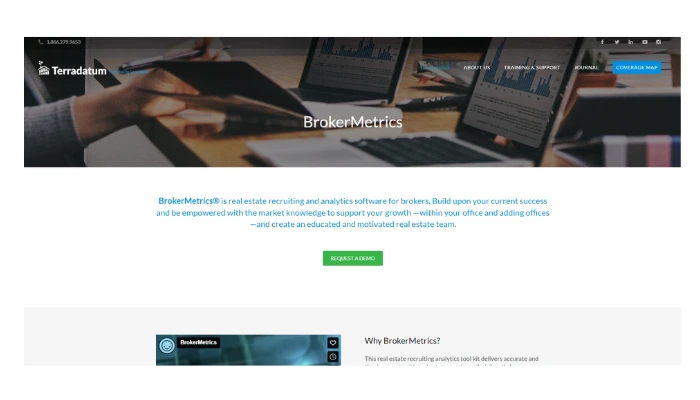
Tailored by real estate brokers, BrokerMetrics provides valuation tools and market trend data.
It aids agents in pricing properties competitively and assists buyers and sellers in making informed decisions.
Features
Valuation tools, market trend data, and competitive pricing assistance.
Pricing
Pricing details are typically provided by contacting BrokerMetrics directly.
6. ValuTrac Software
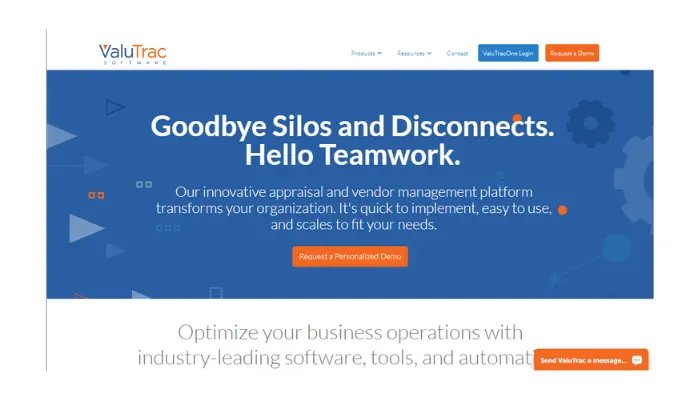
ValuTrac is a comprehensive appraisal management system that streamlines property valuation processes.
Moreover, it enhances efficiency by automating workflows, ensuring compliance, and producing accurate valuation reports.
Features
Appraisal management, workflow automation, and compliance support.
Pricing
Customized pricing based on your organization’s needs.
7. Pro Teck’s Valuation Services
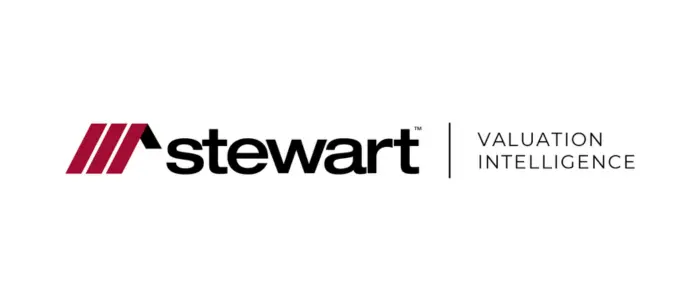
Pro Teck offers a range of valuation services powered by data analytics and market insights.
Their software helps mortgage lenders, servicers, and investors make well-informed decisions about property valuations.
Features
Data analytics, market insights, valuation services.
Pricing
Pricing details can be obtained by reaching out to Pro Teck.
8. Bowery Valuation
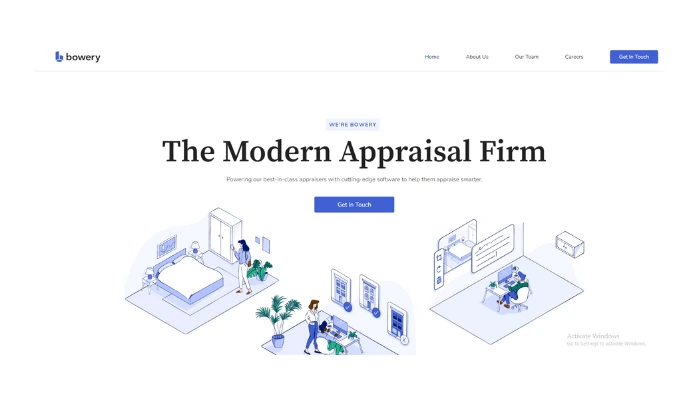
Bowery’s technology-driven platform modernizes the appraisal process.
It integrates data from various sources and assists appraisers in producing faster and more accurate commercial property valuations.
Features
Technology-driven appraisals, data integration, and accurate valuations.
Pricing
Pricing information is typically available upon request.
9. RCA Commercial Real Estate
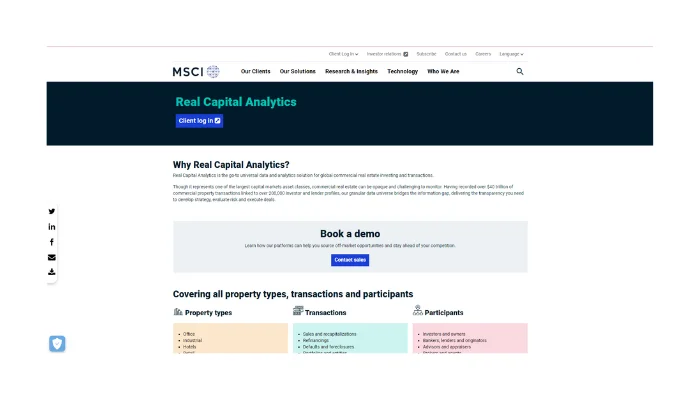
RCA provides a data-driven platform for commercial property valuation and investment analysis.
It offers comprehensive property transaction data and market intelligence to support informed decision-making.
Features
Commercial property data, investment analysis, and market intelligence.
Pricing
Contact RCA for pricing details based on your usage.
10. RealNex Valuate
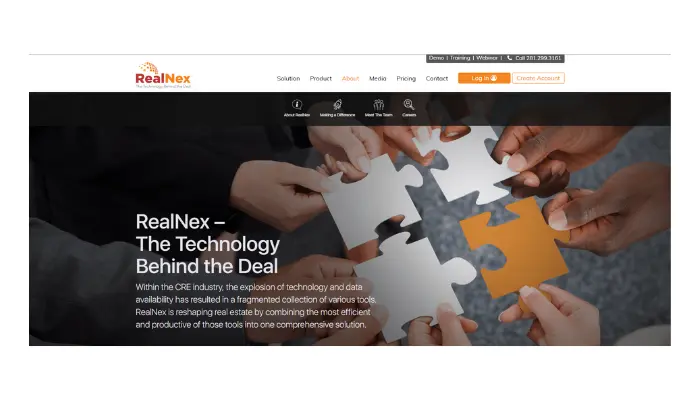
RealNex Valuate is a cloud-based software suitable for commercial property valuations and financial analysis.
It offers advanced modeling tools and a customizable interface to meet the needs of real estate professionals.
Features
Cloud-based platforms, commercial property valuations, and advanced modeling.
Pricing
Pricing information is usually provided by contacting RealNex directly.
Free Property Valuation Software vs Custom Software
It goes there are a number of free property valuation softwares, but should you choose them over property valuation software?
Let’s see:
| Aspect | Free Property Valuation Software | Custom Property Valuation Software |
| Cost | Budget-friendly (usually free) | Higher upfront investment |
| Features | Basic tools and calculations | Advanced features and analysis |
| Accuracy | Limited accuracy potential | More accurate valuations |
| Data Source | Relies on public data | Custom data integration |
| Complexity | Simple and user-friendly | Tailored to specific needs |
| Scalability | Limited scalability | Adaptable and scalable |
| Workflow Efficiency | Basic automation | Streamlined and automated |
| Support and Updates | Limited support and updates | Personalized support and updates |
| Initial Investment | No upfront cost | Higher upfront cost |
| Long-term Benefits | Limited growth potential | Enhanced efficiency and accuracy |
| Suitable For | Quick estimations | Professionals and businesses |
Ultimately, the choice depends on your specific needs and priorities.
Free software is suitable for simple valuations and quick estimates, while custom software offers tailored solutions with advanced features, accuracy, and scalability.
Consider your budget, long-term goals, and the level of accuracy required when deciding between the two options.
Moving on, let’s move the next section where we shall be discussing whether you should go for a custom solution.
When Should You Go For Custom Property Valuation Software Development?
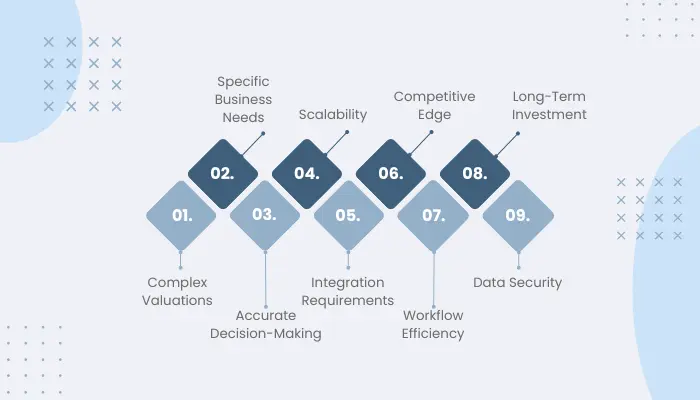
Should you go for custom software development and create your own custom property valuation?
Well, when considering whether to opt for custom property valuation software development, there are several scenarios where it might be the right choice for you:
Complex Valuations
If your property valuation needs involve intricate calculations, detailed data integration, or advanced analysis, custom software can be tailored to handle these complexities effectively.
Specific Business Needs
If your business has unique requirements or specialized workflows that off-the-shelf software can’t accommodate, custom development ensures your software aligns perfectly with your operations.
Accurate Decision-Making
If accurate property valuations are crucial for your decision-making processes, custom software can offer in-depth analysis, reducing errors and enhancing the precision of your valuations.
Scalability
As your business grows, the demands on your property valuation software may change. Custom solutions are designed to scale with your business, accommodating increased data volumes and user loads.
Integration Requirements
If you need seamless integration with other systems or databases, custom software can be developed to ensure smooth data flow and real-time updates.
Competitive Edge
Custom software can give you a competitive advantage by offering features that are not available in off-the-shelf solutions, setting you apart in the market.
Workflow Efficiency
If you want to streamline your valuation processes and improve workflow efficiency, a tailor-made solution can automate tasks, reducing manual effort.
Long-Term Investment
While custom software development comes with an initial investment, it offers long-term benefits in terms of accuracy, efficiency, and adaptability, making it a valuable investment.
Data Security
If data security is a top priority, custom software can be designed with stringent security measures that meet your organization’s specific requirements.
Property Valuation Software Development Cost
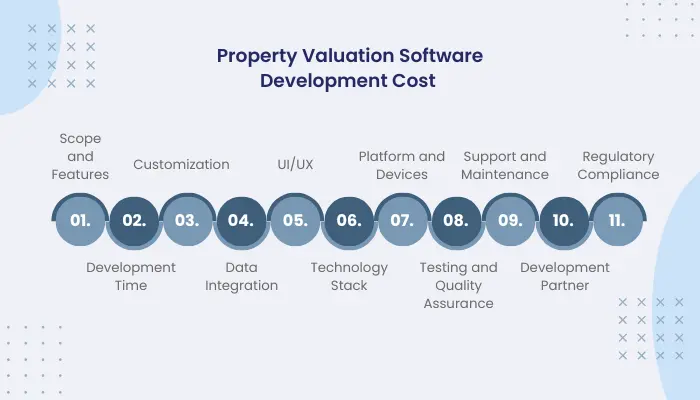
One of the big questions to consider when hiring software developers and creating a project is, how much will it cost?
Well, there are a number of different factors that you have to consider.
These are, as mentioned below:
1. Scope and Features
When estimating the cost, think about the features you need. Basic tools will cost less than a comprehensive solution with advanced features like analytics, data integration, and reporting.
2. Development Time
Consider the time required for design, development, testing, and deployment. Complex features may take longer, affecting the overall cost.
3. Customization
Keep in mind that customized solutions come with a higher cost. Decide how much customization you truly need to balance cost and functionality.
4. Data Integration
If your software needs to work with various data sources, it might increase development complexity and consequently, the cost.
5. User Interface (UI) and User Experience (UX)
A user-friendly interface enhances the user experience but may require extra design and development efforts, impacting the budget.
6. Technology Stack
The choice of technologies can affect costs. Some technologies might require more development time, which can increase expenses.
7. Platforms and Devices
If the software needs to work on multiple platforms (web, mobile, desktop), the development effort and cost may vary.
8. Testing and Quality Assurance
Allocating resources for thorough testing and quality assurance is important, but it can contribute to the overall cost.
9. Support and Maintenance
Don’t forget to budget for ongoing support and updates after the initial development phase.
10. Development Partner
Costs can differ based on the expertise and location of the development team. Offshore teams might be more cost-effective, but consider factors like communication and quality.
11. Regulatory Compliance
If your software needs to adhere to specific industry regulations, the development process might require additional effort and resources.
Remember, every project is unique, and these factors will influence your property valuation software development cost.
It’s advisable to consult with development experts who can provide a tailored estimate based on your specific requirements. For more details on the same, consult a real estate software development company.
Conclusion
This is all you need to know about property valuation software and developing your own custom property valuation software. And with this, you are ready to make the right choice for your real estate business.
FAQ
Custom development involves creating personalized property valuation software tailored to specific needs, ensuring accurate property assessments and streamlined processes.
Custom development offers flexibility to address unique valuation requirements, integrate with existing systems, and accommodate future scalability, resulting in a more accurate and efficient valuation process.
Tailored algorithms and features can be designed to match specific property types and local market conditions, enhancing accuracy and reducing errors in the valuation process.
Custom solutions allow for the implementation of robust security measures, including encryption, authentication, and authorization protocols, safeguarding sensitive property and user data.
Yes, custom software can be designed to seamlessly integrate with your current property databases, CRM systems, and other relevant tools, streamlining data flow and minimizing disruptions.
The timeline varies based on complexity, but it usually ranges from a few months to a year, encompassing requirements gathering, design, development, testing, and deployment.
Costs depend on features, complexity, and development time. While custom solutions might have a higher upfront investment, they offer long-term efficiency gains and accuracy improvements.
Benefits such as improved accuracy, streamlined processes, and enhanced productivity can often be observed shortly after deployment, though full ROI might take a bit longer.

Niketan Sharma is the CTO of Nimble AppGenie, a prominent website and mobile app development company in the USA that is delivering excellence with a commitment to boosting business growth & maximizing customer satisfaction. He is a highly motivated individual who helps SMEs and startups grow in this dynamic market with the latest technology and innovation.
Table of Contents











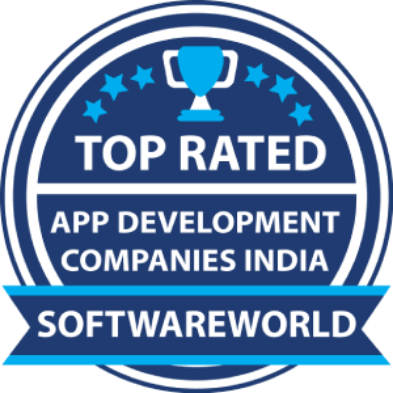
No Comments
Comments are closed.